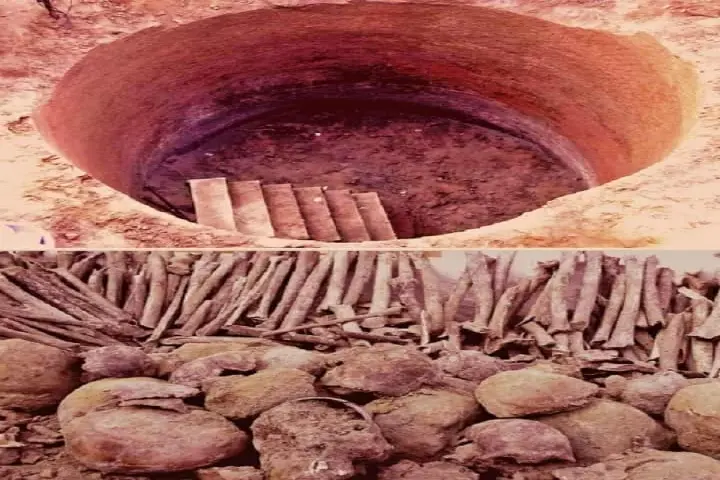

The skeletons found in the well in Ajnala, Punjab according to a study belong to soldiers who were killed by the British during the First War of Independence in 1857
<p>
<strong>The mystery shrouding the discovery of a large number of human skeletons excavated in 2014 from an old well in Punjab&rsquo;s Ajnala town has been solved. According to a study, these remains, which are 160-year-old, belong to people from the Gangetic plain, who were killed during the First War of Independence in 1857.</strong></p>
<p>
When these skeletons were discovered in Punjab it was believed by some historians that these were victims of the riots that took place following the Partition of India and Pakistan in 1947. While many suggested that these were remains of Indian soldiers killed by the British in 1857.</p>
<p>
<iframe allow="accelerometer; autoplay; clipboard-write; encrypted-media; gyroscope; picture-in-picture" allowfullscreen="" frameborder="0" height="315" src="https://www.youtube.com/embed/5wnt_WKxDeg" title="YouTube video player" width="560"></iframe></p>
<p>
In a study which saw Dr J.S. Sehrawat, Panjab University&rsquo;s anthropologist collaborated with Hyderabad&rsquo;s Centre for Cellular and Molecular Biology, Lucknow&rsquo;s Birbal Sahni Institute, and Banaras Hindu University, confirmed the place of origin of these martyrs by using DNA and isotope analyses.</p>
<p>
Published in the journal Frontiers in Genetics on April 28, the study involved the use of 50 samples for DNA analysis and 85 specimens for isotope analysis.</p>
<p>
Talking to the media about this study, Dr K. Thangaraj, Chief Scientist, CCMB, and a senior member of this team said: &ldquo;DNA analysis helps understanding ancestry of people, and isotope analysis sheds light on food habits. Both the research methods supported that the human skeletons found in the well were not of people living in Punjab or Pakistan. Rather, DNA sequences matched with the people from UP, Bihar, and West Bengal.&rdquo;</p>
<p>
According to Dr. Sehrawat, who is the study&rsquo;s first author, the result of the research are in line with the historical evidence that the 26th Native Bengal Infantry Battalion which had people from the eastern part of Bengal, Odisha, Bihar and Uttar Pradesh was stationed at Mian-Mir, which is now in Pakistan. The soldiers of this battalion had killed British officers and later they were captured near Ajnala and executed.</p>
The Indian Chamber of Commerce (ICC) on Thursday hosted the 14th India Minerals and Metals…
Prime Minister Narendra Modi departed from Ghana's capital city of Accra after concluding the first…
India and Australia have undertaken the first science and technology project arrangement to improve the…
The eighth edition of India-France Joint Military Exercise Shakti-VIII concluded on Thursday at Camp Larzac,…
As Prime Minister Narendra Modi has been conferred the national honour of Ghana, Officer of…
External Affairs Minister S Jaishankar held a meeting with FBI Director Kash Patel in Washington…